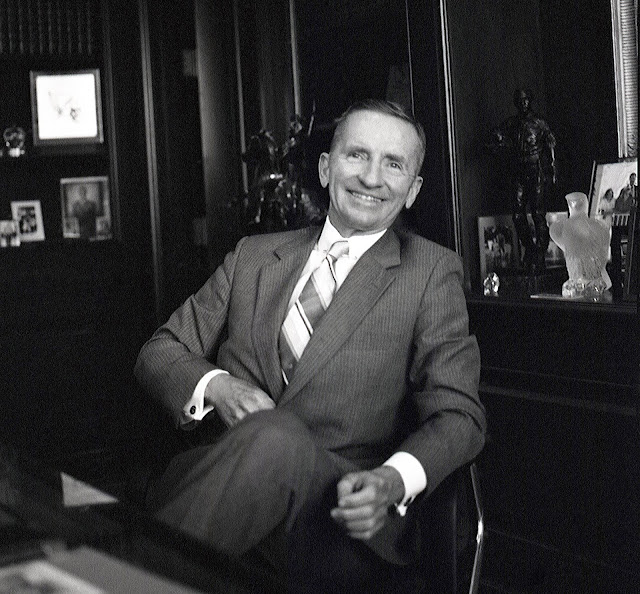Francis I. duPont & Co. Genealogy: Part V
A.C. Allyn & Co., Continued
F.I. duPont & Co. (1963)
F.I. du Pont, A.C. Allyn, Inc. (subsidiary, founded 1963, New York)
In 1963, while Allyn Jr. was still head of the White Sox and three years after Allyn Sr. died, the Allyn brothers decided to merge A.C. Allyn & Co. with the firm of Francis I. du Pont & Co. (founded 1931, New York), whose senior partner, Edmond du Pont, was the son of the founder. The newly merged firm became the second largest brokerage firm in the United States, second only to Merrill Lynch, Pierce, Fenner & Smith, Inc. with "assets of more than 300 million dollars and a net worth in excess of 35 million dollars." The new firm had more than 110 offices and almost 3,000 employees. It retained the F.I. duPont name, but an affiliate named F.I. du Pont, A.C. Allyn, Inc. (founded 1963, New York) was created as a corporate underwriting division. The Allyn brother joined the duPont firm as partners.
Given Francis I. duPont's early belief that small investors were the future of the stock market, it is not surprising that the firm became a house "dealing mainly with retail customers." By the early 1960s, however, as the trading volume of the stock exchange increased, the firm's expertise became a logistical disadvantage despite the firm's early entry into automation. According to Gerard Colby, "Throughout 1968, F.I. du Pont & Company was swamped with a flood of selling and speculative buying, most often on margin... The result was a 100 percent increase in Edmond [du Pont]'s costs: increased personnel, massive overtime, and following the national inflation, a general rising trend in all expenses." Orders were delayed and paperwork backed up to an unacceptable degree, but du Pont continued to accept more orders, which put the firm in violation of securities laws and stock exchange rules. After an investigation, the NYSE fined the firm, Edmond du Pont, Charles Moran, Jr. and a former partner, Alfred J. Coffey, who had been in charge of operations, for not handling customers' complaints properly between 1968 and 1969.
When the market declined in May 1969, those who bought on margin found themselves in an unforgiving environment as capital became scarce. Colby states that "F.I. du Pont was particularly hard-hit by the selling" because it was "saddled with many speculative mutual funds and small investors as customers." That year, the firm lost $7.7 million. In response to the crisis, the firm began to make plans to become a corporation and created a board of directing partners. By August 1969, the firm also began to contract in order to reduce the costs incurred during times of heavier trading that remained even when the volume of trade declined, closing offices and laying off employees. Wallace Latour, a du Pont partner, said the firm, "like most Wall Street houses, had been trying to reduce its expenses for the last several months, but our efforts weren't sufficiently effective... Finally we decided we would have to being laying off where we could." The back office crisis led to a leadership change within the firm. In September 1969, Charles Moran, Jr. stepped down as managing partner and was replaced by Latour (1924-1992), a New York native and Phillips Exeter and Princeton University graduate (1946), who had become a partner in 1962.





Comments
Post a Comment